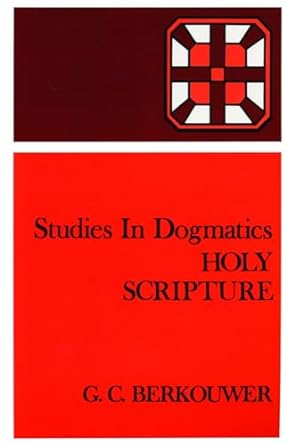A Brief Book Summary from Books At a Glance
by Steve West
Table of Contents
1 Holy Scripture and Certainty
2 The Testimony of the Spirit
3 Holy Scripture as Canon
4 Authority and Inspiration
5 The God-breathed Character of Holy Scripture
6 The God-breathed Character and Continuity
7 The Servant-Form of Holy Scripture
8 Translation and Historicity
9 Reliability
10 Clarity
11 Sufficiency
12 Holy Scripture and Preaching
13 Faith and Criticism
Summary
Chapter 1: Holy Scripture and Certainty
Given critical approaches to Scripture, it is essential to address the question of the relationship between faith and the doctrine of Scripture. Can the church’s historical view still be maintained today? Faith does not mean religious subjectivism; the correlation of faith is determined by its object, which is God and his Word. The authority of Scripture does not depend on a person’s faith: it is the Word of God on which faith depends. Throughout history the church was united that Scripture was the inspired and infallible Word of God, but higher criticism argued that it was the fallible work of human beings. People in the church faced the conflict of whether the Scriptures could still be proclaimed with authority, and whether certainty in faith was warranted. It is vital that we understand what it means that the Scriptures are the Word of God and that we heed Paul not to go beyond what is written. While maintaining that Scripture is God-breathed, we must not be docetic, setting aside the reality of the human authorship of the books. God ordained that his Word would come to us through human writers. Without certainty in the Word, we cannot have full certainty about the gospel. American fundamentalism has oversimplified the issues and is reductionistic, preventing a deeper probing into the nature of Scripture and obscuring the context in which God gave his Word. Fundamentalists have let themselves be guided by the false dichotomy that the Word is either wholly divine or wholly human. We must not see Scripture as a supratemporal reality: God’s revelation comes in history; there is no ahistorical kerygma. We must not proceed by a priori postulates about what is necessary for our faith to have certainty, but rather submit to the gospel and discover by faith the certainty and authority of God’s Word. It is only by faith in Christ that we can receive the Word of God as it actually is. Faith in God’s Word is necessary for deep assurance of salvation. The church’s confession and preaching of the Word has been to take up and read and come and hear Christ.
Chapter 2: The Testimony of the Spirit
Acceptance of Scripture as the Word of God was never supposed to be an impersonal, objective deliverance of reason. On the contrary, it was based on a personal relationship with God and the testimony of the Holy Spirit. The Reformers’ view of the testimony of the Spirit was set against Rome’s view of the authoritative testimony of the church. Only God is a sufficient witness to himself, and only the Spirit can seal our acceptance of Scripture. Calvin, Kuyper, and Bavinck all agreed that the witness of the Spirit concerning God’s Word does not come in isolation from the life of faith and salvation in Christ (i.e., the Spirit does not directly speak to us saying, “This is the Word of God” before we exercise saving faith). Scripture is clear that without the Spirit we cannot comprehend or receive the Word of God. The Spirit’s work and testimony are irrefragably tied to the salvation that has appeared in Christ. It does not exclude the individual but wins their consent. We cannot divide the Spirit’s testimony of our adoption and his testimony about the Word. The Reformers understood that “faith in Scripture is possible and real only in connection with the witness of the Spirit to Christ and his salvation.” They further understood that the proper conviction about the nature of Scripture does not arise as a product of a natural man’s reason. The testimony of the Spirit and the self-authenticating nature of Scripture are inseparable. Acceptance of Scripture as God’s Word cannot be preserved apart from acceptance of the gospel. Deep assurance cannot stem from human reason but must come from the Spirit. . . .
[To continue reading this summary, please see below....]The remainder of this article is premium content. Become a member to continue reading.
Already have an account? Sign In
Buy the books

HOLY SCRIPTURES: STUDIES IN DOGMATICS, by G. C. Berkouwer